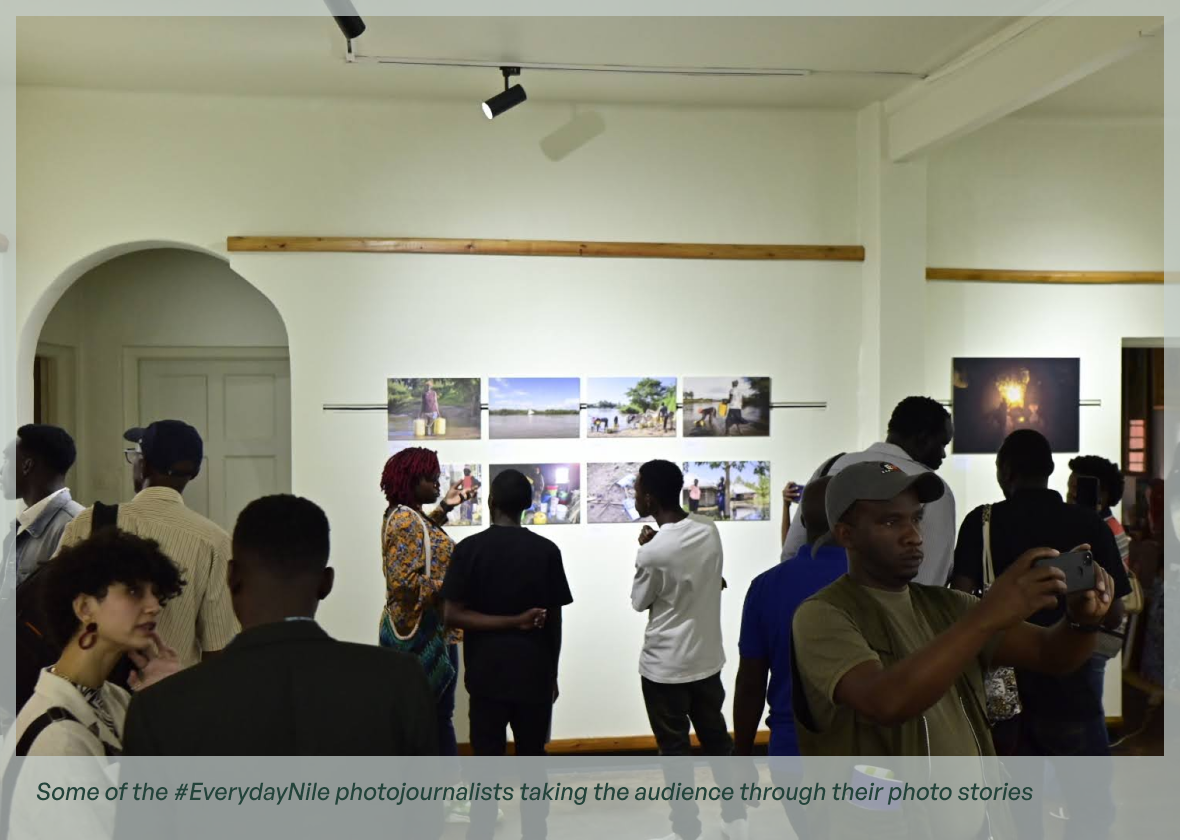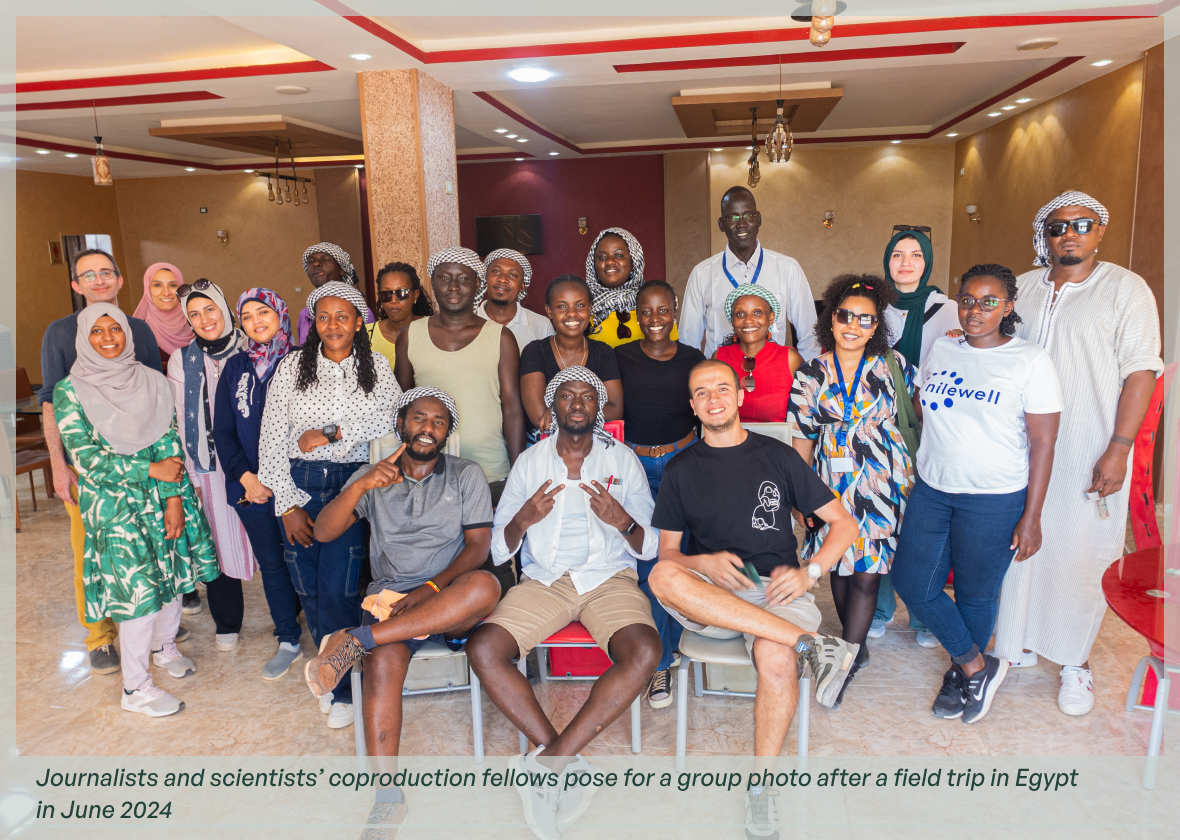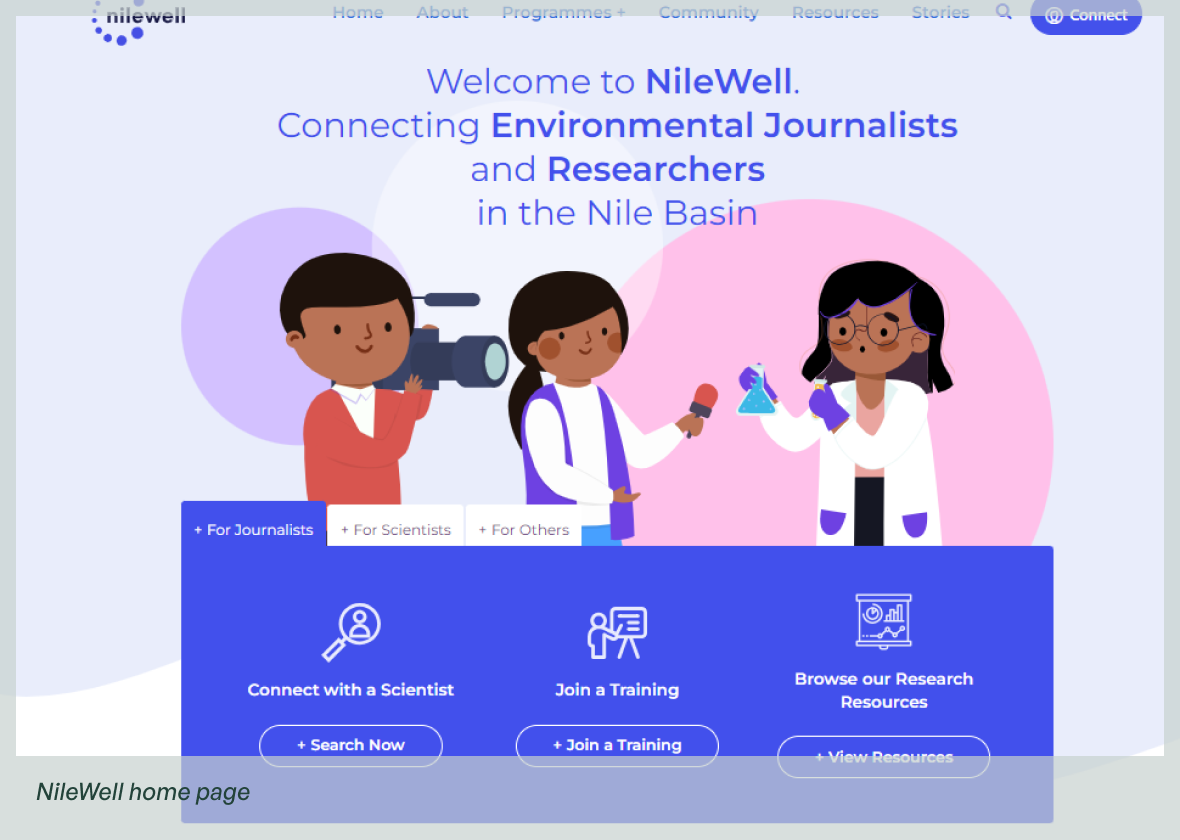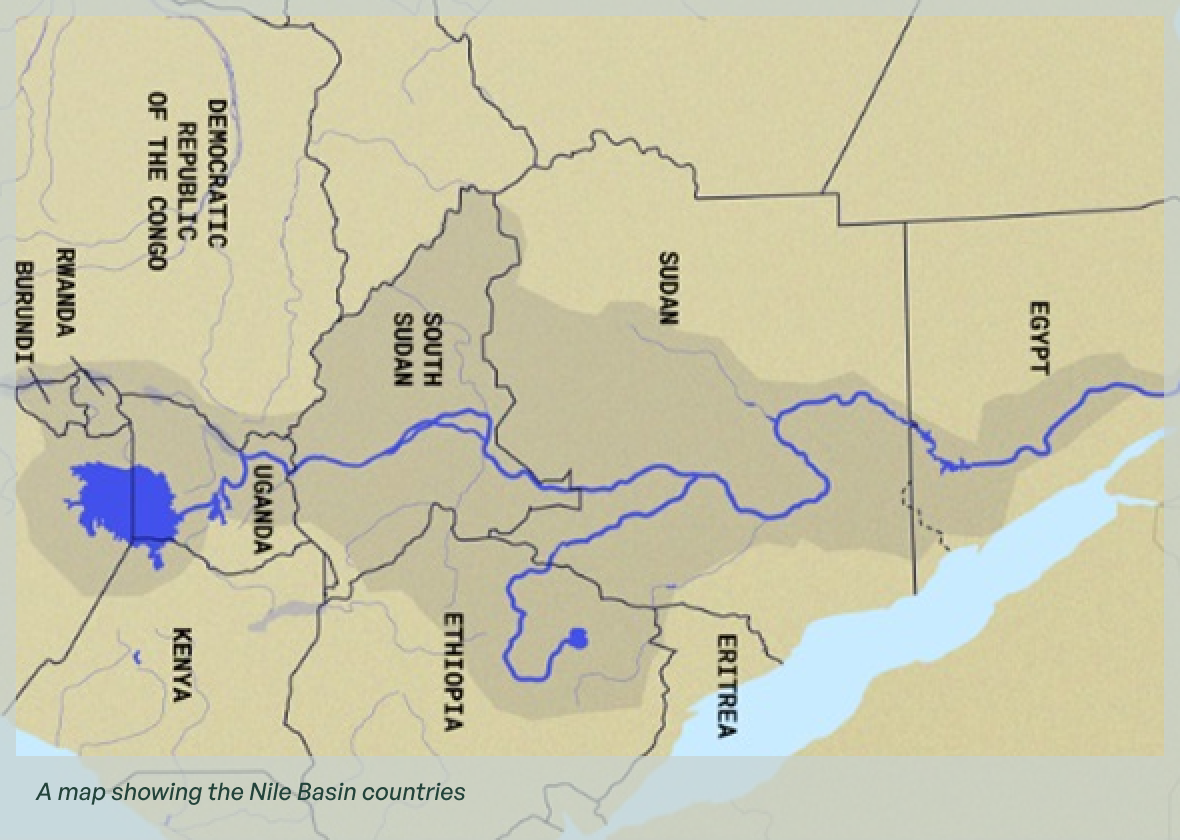





The Nile River, the world’s longest river at 6,650 km, stretches through 11 African countries and supports millions of people. The 3.25 million sq km Nile River Basin is one of the world’s most biodiverse regions, but is highly threatened by climate change and water scarcity. It is also characterized by challenges such as high population growth, scarce resources, complicated topography, deteriorating environment, poverty and economic problems, social and gender inequity, and lack of capacities and access to knowledge.
In light of these, there is a crucial need for development-oriented and demand-driven research. the Nile Node comprising InfoNile and Nile Basin Capacity Building Network (NBCBN) seeks to use the media as an intermediary between environmental research and its key stakeholders for better resilience and sustainable development under the Trans-Path-Plan: Water Transformation Pathways Planning, a five-year project that started in 2022 with 16 organizations from around the world led by IHE-Delft from the Netherlands and IIT Guwahati, from India and funded by the Dutch Ministry of Foreign Affairs.
There is a critical gap between the data published by scientists and researchers and its translation to general public knowledge through the media. This results from gaps in skills, knowledge, trust and resources on the sides of both scientists and communicators. Currently, most of the research ends up only in reports and journals and rarely has a real impact on better livelihoods and well-informed decision-making.
Water Transformations in the Nile Basin
NBCBN, a regional network for capacity building of water professionals in the Nile Basin, adopts a more multi and transdisciplinary-oriented research methodology to bridge the gap between science and policy through the media as an intermediary. This is done through getting out of scientific silos, developing new research methods and working on research projects in close cooperation with journalists, local communities and policymakers. This helps to develop a new scientific community capable of communicating and creating impact.
The partner, InfoNile, is a network of journalists covering critical water and environmental stories through science, multimedia and data-driven storytelling. It is an arm of Water Journalists Africa, a media development organization focused on water, climate change and wildlife, with membership of over 2,000 journalists in 50 countries across Africa. InfoNile works on the premise that transformation to a peaceful, sustainable sharing of water resources in the Nile Basin, in a time of water scarcity and climate change, can be achieved through the provision of science-based information through the media.
The focus, therefore, is on translating scientific research on water issues to spark societal action through the provision of evidence-based information in the media. InfoNile researches ways for journalists, scientists, activists and local communities to better communicate scientific knowledge about the threats and solutions to transboundary water resource management in the Nile Basin, to ensure sustainable shared use of the Nile waters. To achieve this, InfoNile launched the NileWell platform that bridges the gap between journalists and scientists to collaborate in telling credible science stories.
The Nile node approach
Our joint approach is to bring together scientists and journalists through different strategies. This includes
- The NileWell Journalists Scientists Coproduction Fellowship Programme;
- #EverydayNile photojournalism project;
- Photovoice
Nilewell Journalists-Scientists Coproduction Fellowship
This is a collaborative programme between journalists and scientists to tell science stories. It has 16 participants (8 journalists and 8 scientists) from the Nile Basin who are selected and trained in biodiversity reporting, transboundary water resources reporting, science journalism, science communication, and data journalism. It entails an inception residential training workshop for both scientists and journalists on how to work together effectively, follow-up online training and mentorship sessions on specific topics, collaborative projects between scientists and journalists to produce communication outputs and events that bring scientists and journalists together to showcase their work. During the programme, participants co-produce communication outputs based on the scientists’ research such as stories, podcasts, Twitter threads, blog posts, short videos, and MoJo videos among others. We are currently doing mentorship and training for the second cohort that was launched in Cairo, Egypt in June 2024.
#EverydayNile
Mainstream media reporting on the Nile remains caught in “the nation trap” rather than emphasizing transboundary water-sharing interests, such as in the current tensions over the Grand Ethiopian Renaissance Dam. More than ever, there is a need for nuanced and alternative views to foster mutual understanding and cooperation between Nile riparian countries. By mobilising the power of the visual, the #EverydayNile photojournalism project promotes a different narrative, framing, and understanding of the Nile River as a shared resource that bypasses national and disciplinary boundaries. Through #EverydayNile, InfoNile in partnership with MICT supported a group of photojournalists from the Nile Basin countries to produce photo stories about water-related issues along the Nile River. The stories bring together personalised, human-centred reporting through photos with data and science on water issues, which range in themes from flooding to water scarcity to climate change and culture. The program entails the provision of story grants and mentorship to produce their stories which will be up for discourse with other stakeholders during community and regional exhibitions. The theme for the 2024 #EverydayNile is “Water and Biodiversity” and the first regional exhibition was launched in Kampala Uganda on November 1, 2024.
PhotoVoice
PhotoVoice is a participatory visual research method that enables people to record and reflect on their community's strengths and concerns. It promotes critical dialogue and knowledge about important issues through large and small group discussions of photographs and targets policymakers on the key environmental issues raised by the community.
Rather than using interviews or surveys, the Photovoice research method puts the camera in the hands of local communities to take photos that showcase their realities. Discussions are then held around the photos, which the communities curate into ‘photo stories’ that show their realities and proposed solutions around the issue at hand. Photovoice captures issues through photos and narratives – including economic circumstances, social interests, experiences and problems and differential access to resources and linkages. The overarching goal is to change societal power and enable a shift in control of knowledge creation for those affected by problems. It also seeks to systemise local knowledge and organise shared collective analysis of the relationship between the problems and causes.
This research method shall be adopted this year by PhD students in Egypt and Tanzania, each paired with a journalist to communicate these scientific findings.
Outputs
Outputs of the Nile node will include scientific research on water issues and how communities are involved in writing compelling journalistic stories, communicating these issues and providing solutions. The ultimate goal is to reach decision-makers and policymakers with credible information from communities on their water issues and solutions to encourage positive change in the water sector.
Authors & Contributors
